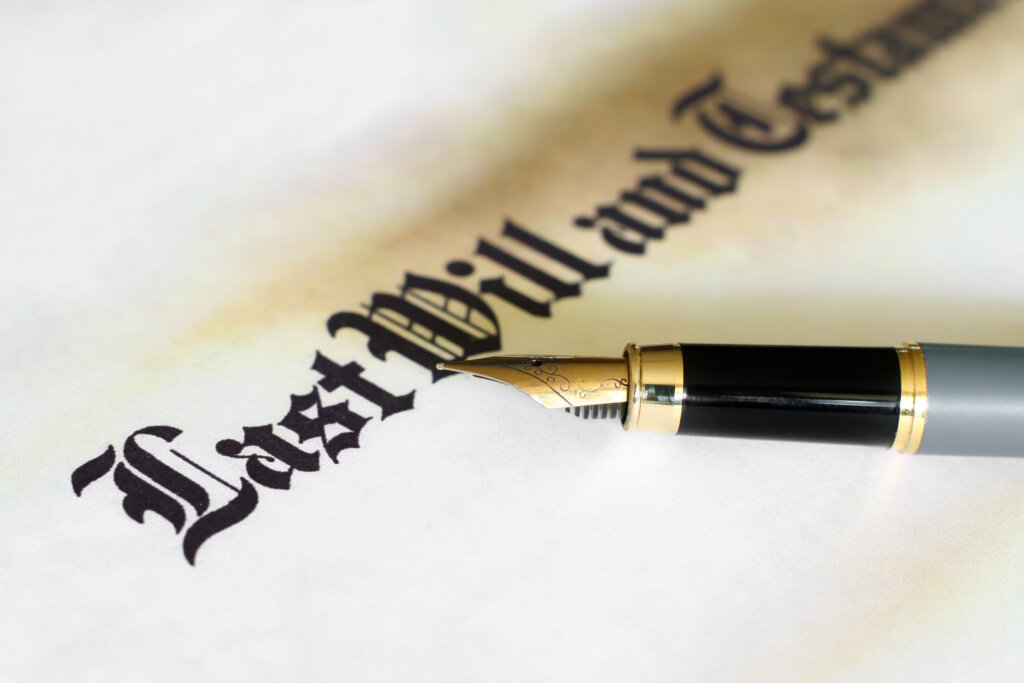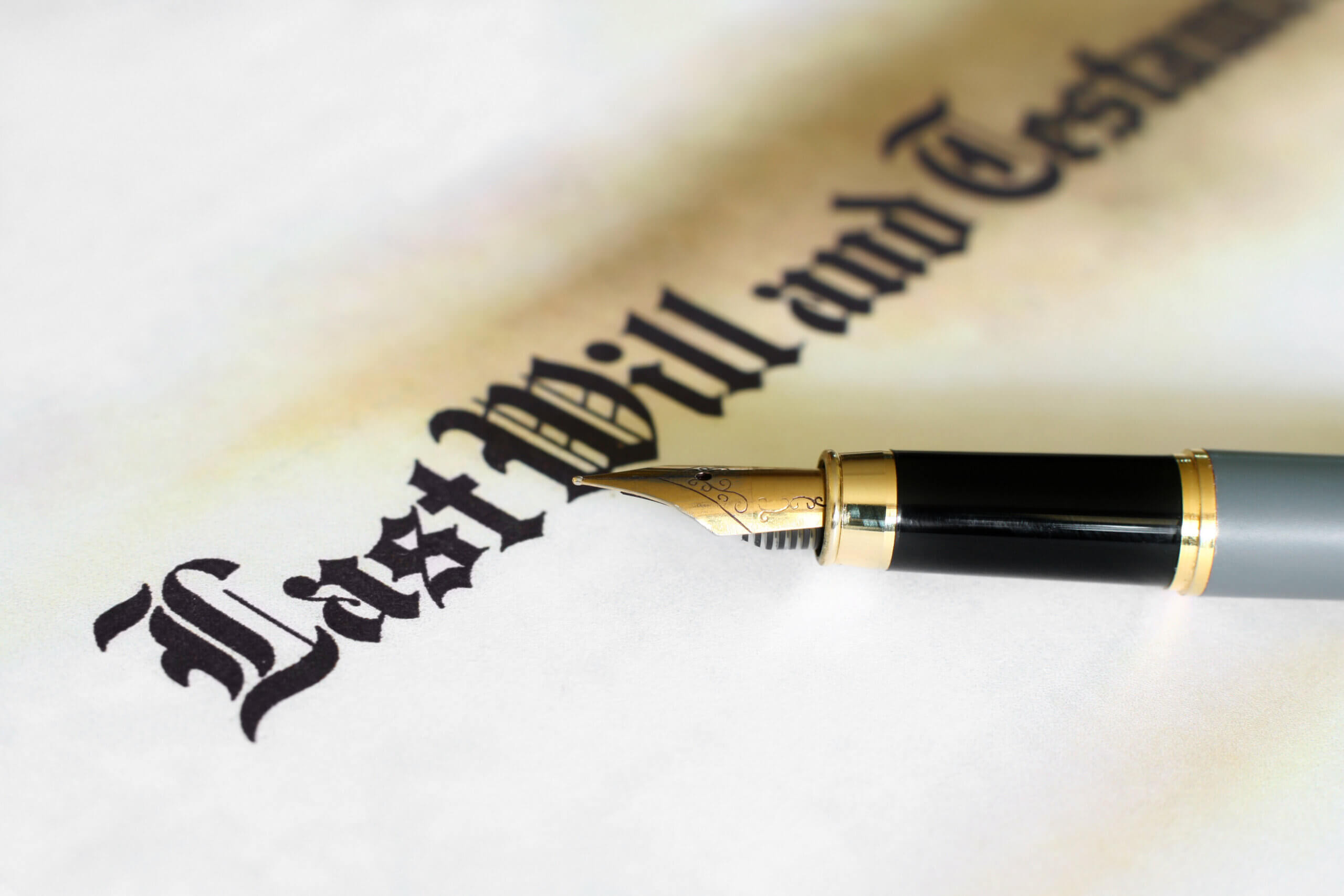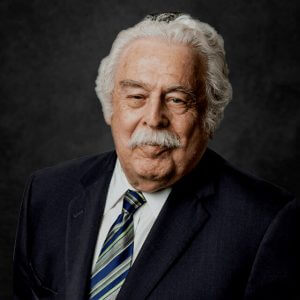
Why Choose Rosenblum Law For Your Estate Plan

Our Compassionate Approach
Proven Track Record
Our Client Testimonials
Our Working Process in 5 Steps
Contact Us
Speak with an attorney about your circumstances and the estate plan you want to create.
Step-1Gather your Information
Use our client portal to gather information on your assets, desired beneficiaries and other information your attorney will need to create your estate plan.
Step-2Meet with Us
Meet with an attorney for a longer discussion about your desired estate plan. Our attorneys will use the information to create the plan that best meets your needs.
Step-3We Get to Work
Our attorneys will draft the estate plan and provide you with a copy for comments and edits.
Step-4Signing and Storing
Once you are satisfied with the estate plan we have created we’ll provide instructions on signing and storing the documents so that they are legally valid and available when needed.
Step-5Featured Client Testimonial

Get Personalized & Compassionate Care
We are a boutique law firm with family values. Call us today for a free consultation.
Table of Contents
Introduction to Estate Planning in New Jersey
Planning for what will happen to your estate after you’re gone can be a difficult and emotional process. There’s also a common myth that estate plans are only important for older, wealthy people. As a result, many procrastinate when it comes to estate planning.
In fact, according to one survey, only 33% of Americans have an estate plan. Among respondents without an estate plan, 40% said they didn’t have one because they just haven’t gotten around to it. Another 33% said that they didn’t have an estate plan because they didn’t believe they had enough assets to pass on.
Unfortunately, incapacity or death can happen at any time. If you’re incapacitated, an estate plan can help ensure you and your loved ones are properly cared for. You can also appoint people you trust to make important decisions on your behalf.
In the event of your death, an estate plan can make sure you have a say in what happens to your property. The process of winding up your estate will be less time-consuming and stressful for those left behind as well.
This guide covers general information about estate planning in New Jersey. Everyone’s situation is unique, and there’s no “one-size-fits-all” estate plan. Once you’re ready to plan your estate, you should consult a New Jersey estate planning attorney. A lawyer can review all the details of your estate and create a comprehensive plan that suits your specific needs.
What is estate planning and why is it important?
“Estate planning” generally refers to making a plan for how your assets will be protected, managed, and distributed upon your death. By having an estate plan, you can exercise more control over what happens to your property. You can also make sure your loved ones are properly cared for.
A key part of any estate plan is a will, but estate planning can involve much more. For example, you may place certain assets into trusts. Or you may create a plan for gifting assets during your lifetime. If you have minor children, your estate plan will also provide for their guardianship and financial support.
Estate planning should involve planning for incapacity as well. “Incapacitation” means you’re mentally or physically unable to handle your own affairs. Incapacity can happen unexpectedly at any age and to anyone, not just the elderly or ill.
By including a durable financial power of attorney and advance healthcare directive in your plan, you can appoint people you trust to make decisions on your behalf. You can also give instructions on the type of medical treatment you do and do not want to receive.
If you don’t account for potential incapacity in your estate plan, the court will appoint someone to make financial, legal, medical, and other important decisions for you. They will also choose someone to care for any minor children. These appointees may not be who you would have chosen. They also may not be familiar with your wishes.
In short, an estate plan is essential if you want to ensure your wishes are respected. It also makes winding up your estate faster, easier, and less expensive for those left behind.
A carefully crafted estate plan can help achieve many other specific goals as well, such as:
- Minimizing taxes
- Protecting assets from future potential creditors
- Securing inheritances for children from prior marriages
- Smoothly transitioning business interests
- Guarding against claims from disinherited family members
See Chapter 3: Basic Estate Planning Documents in New Jersey and Chapter 4: Using Trusts as Part of Your Estate Plan for more information about basic estate planning documents. See Chapter 5: The Estate Planning Process in New Jersey for more information about the estate planning process.
Overview of New Jersey intestacy laws
If you die without a will, New Jersey’s intestacy laws set forth under New Jersey Statutes Annotated (N.J.S.A.) § 3B:5-1 et. seq will determine how your estate is passed on.
Under these laws, spouses or domestic partners and children get priority. If you don’t have a spouse, domestic partner, or children, your closest relatives will inherit your property. Depending on who you leave behind, this may be a distant relative. If a court finds you have no living relatives by blood or marriage, your property will go to the State of New Jersey.
Intestacy laws often don’t reflect how someone would want their assets to be distributed. Determining who’s entitled to your property can also be a lengthy, expensive, and contentious process. So when planning your estate, it’s best not to rely on these laws.
The table below summarizes who will inherit your property under the most common scenarios.
| Your surviving family members | Who inherits your estate |
| Descendants (such as children) but no spouse | Your descendents get everything |
| Spouse but no descendents or parents | Your spouse gets everything |
| Spouse and descendents from you and that spouse, and the spouse has no other descendants | Your spouse gets everything |
| Spouse and descendants from you and that spouse, and the spouse has other descendants from other relationships | Your spouse gets the first 25% of the estate (minimum of $50,000 and maximum of $200,000) plus ½ of the remaining estate, and your descendents get the remainder |
| Spouse and descendants from you and someone other than that spouse | Your spouse gets the first 25% of the estate (minimum of $50,000 and maximum of $200,000) plus ½ of the remaining estate, and your descendents inherit the remainder |
| Spouse and parents | Your spouse gets first 25% of estate (minimum of $50,000 and maximum of $200,000) plus ¾ of the remaining estate, and your parents get the remainder |
| Parents but no spouse or descendants | Your parents get everything |
| Siblings but no spouse, descendants, or parents | Your siblings get everything |
Note that your “half blood” relatives will inherit from you as if they were “whole blood.” For example, a half-brother will inherit from you as if you shared both parents. In addition, only children who are your legal children under New Jersey law (including by adoption) will inherit your property.
New Jersey’s probate process
When you die, your loved ones aren’t allowed to just take the property you left behind. This is true even if you left certain assets to them in your will. Instead, your estate will generally have to go through probate.
“Probate” is the court-supervised process of winding up your estate. This process will be handled by the Surrogate Court in the county in which you lived at the time of your death.
If you leave a will, the person you name in your will to administer your estate (called the “executor”) can start the probate process. They’ll need to take your original will and an original death certificate to the Surrogate Court. The court will then verify that your will is valid and officially appoint the executor.
If you don’t leave a will, or your named executor isn’t able or willing to serve, the court may appoint an “administrator.” An administrator performs the same duties as an executor. This will usually be your spouse or domestic partner, if available.
Once appointed, the executor or administrator will be responsible for settling your estate. This includes gathering assets, paying debts and taxes, and distributing remaining assets to your heirs.
If you leave a will, the executor or administrator will distribute assets according to the instructions in your will. If you don’t leave a will, they’ll distribute assets according to New Jersey’s intestacy laws.
The executor or administrator must carefully keep records of how the estate is handled. Before concluding the probate process, they must also submit an accounting of the estate to the court.
Note that if you have a smaller estate and didn’t leave a will, a simplified process may be available under N.J.S.A. §§ 3B:10-3 or 3B:10-4. Under these simplified procedures:
- Your spouse or domestic partner can generally get your assets without probate if the value of all your assets doesn’t exceed $50,000.
- If you don’t have a spouse or domestic partner, one heir can generally get all of your assets without probate so long as 1) the value of your assets doesn’t exceed $20,000 and 2) the heir gets the consent of all other heirs, if any.
The person receiving assets under these procedures will have all the rights and obligations of an administrator.
In general, the larger an estate, the more lengthy and expensive the probate process will be. Even smaller estates can take a long time to settle if the executor or administrator needs to work through complications. Legal challenges can also prolong the process.
As a result, many people want to ensure the probate process goes as smoothly as possible. An estate plan carefully crafted with the help of a lawyer can help achieve this goal.
Estate, inheritance, and other tax considerations
When creating an estate plan, you should be mindful of both federal and New Jersey state tax law obligations. Otherwise, your heirs may not receive the inheritance that you intended.
Below is a summary of relevant taxes, including estate and inheritance taxes. An “estate” tax is a tax on the estate of a person at the time of their death. An “inheritance” tax, on the other hand, is a tax paid by a person receiving property from the estate.
These laws can be difficult to navigate, and like other laws, they may change over time. An attorney can help you understand relevant tax considerations and minimize the impact of taxes on your estate.
New Jersey taxes
New Jersey currently does not have an estate tax, but it does have an inheritance tax.
For inheritance tax purposes, New Jersey tax law puts inheritors (or “beneficiaries”) into different classes based on their relationship to the person who has died (called the “decedent”). The amount of inheritance tax each beneficiary must pay depends on their inheritance tax class.
The table below summarizes New Jersey’s inheritance tax classes.
| Class | Relationship to Decedent | Inheritance Tax |
| A | Parents and grandparentsSpouse, domestic partner, or civil union partnerLegal children (biological, adopted, or mutually acknowledged)Stepchildren (but not step-grandchildren or great-step-grandchildren)Grandchildren, great-grandchildren, and other lineal descendants | None (exempt) |
| B | Class B was eliminated by changes to the tax law in 1963. | N/A |
| C | SiblingsA child’s spouse or civil union partnerA child’s surviving spouse or civil union partner (if the child is deceased) | The first $25,000 is exempt. Amounts over $25,000 are subject to inheritance tax at a rate of 11-16%. |
| D | All other individuals | The first $70,000 is subject to inheritance tax at a rate of 15%. Any additional amounts are subject to inheritance tax at a rate of 16%. |
| E | Certain exempt organizations, including:Qualified charitiesReligious institutionsEducational and medical institutionsNon-profit or scientific organizationsState of New Jersey or any of its political subdivisions | None (exempt) |
Note that if you gift assets in the three years before your death that are a “material part” of your estate, those gifts may be subject to inheritance tax. To avoid the tax, it must be proved that you didn’t make the gifts “in contemplation of death.” This law helps prevent people from giving away large amounts of their property just before death to avoid taxes.
Federal taxes
There’s currently no inheritance tax under federal law. However, there are other federal taxes to consider when planning your estate:
- Estate tax
- Gift tax
- Generation-skipping transfer (“GST”) tax
The federal estate tax is imposed at the time of death on the estate if the estate’s gross value exceeds the lifetime estate & gift tax exemption amount. The exemption amount is adjusted for inflation every year ($12.06 million for individuals and $24.12 million for married couples in 2022). The top estate tax rate is 40%.
Certain deductions can help reduce your taxable estate, such as:
- Estate administration expenses
- Funeral expenses
- Claims against the estate
- Charitable contributions
- Marital deduction for certain property left to your U.S. citizen spouse
The gift tax applies to irrevocable transfers of assets during your lifetime above the estate & gift exemption amount. Often, gifts are obvious. However, sometimes a transfer requires deeper analysis. For example, selling an asset for less than its fair market value or giving a loan without interest may be a “gift” for tax purposes.
Each year, you can generally make gifts to as many people as you want without incurring a gift tax, so long as the gift to each person doesn’t exceed the annual gift tax exclusion amount ($16,000 per individual in 2022). You’ll only pay gift taxes on such gifts once your total lifetime gift amount exceeds the lifetime estate & gift tax exemption.
The GST tax applies to transfers to individuals more than one generation below you, such as grandchildren and lower generations. The GST tax rate is a flat 40% on the value of the transferred property over the GST tax exemption amount ($12.06 million for individuals and $24.12 million for married couples in 2022).
Given the high exemption amounts, most estates do not pay estate, gift, or GST taxes. Still, discussing potential tax implications with a lawyer can help avoid any unpleasant surprises. A lawyer can also help individuals with larger estates get the most out of available tax exemptions, deductions, and exclusions.

Finding a New Jersey Estate Planning Lawyer
Estate planning is much more than just writing a list of who should receive your assets. To create an estate plan that effectively accomplishes your goals, you should get the help of an estate planning lawyer. In particular, your attorney can:
- Ask the right questions to clarify your goals and wishes
- Offer solutions and strategies for achieving your goals
- Look at your estate holistically, taking into account tax, long-term care, insurance, asset protection, family dynamics, and other issues you may not have considered
- Efficiently draft all estate planning documents on your behalf
- Ensure that your documents meet all legal requirements for valid execution
As noted in Chapter 1, most people can benefit from a well-crafted estate plan. An experienced estate planning attorney can help you get it done with as little stress as possible.
Choosing an estate planning attorney
Creating an effective estate plan requires a deep understanding of various federal and New Jersey state laws. So it’s important to choose an attorney who focuses on estate planning, rather than a generalist.
A lawyer who focuses on estate planning is more likely to understand the relevant issues and have the skills and knowledge to create a plan that suits your needs. They’re also more likely to be up-to-date on relevant legal developments.
The first step in choosing a lawyer is having a consultation. Many estate planning lawyers offer a brief introductory consultation free of charge. This conversation will provide the attorney with an overview of the client’s situation and goals. You should also take advantage of this meeting to learn more about the attorney and their firm.
In particular, it’s useful to ask questions about the lawyer’s qualifications and experience planning New Jersey estates like yours. You can also ask about what the estate planning process will look like if you work with them.
The initial consultation is a good chance to evaluate whether the attorney suits you on a personal level as well. You’ll be discussing many private issues and goals with your estate planning attorney. A lawyer who’s attentive, responsive, and non-judgmental can make this process a lot easier.
After the initial consultation, the attorney may gather more information from the client through an intake process. Then, during a lengthier, subsequent consultation, the attorney will go over specifics of a proposed estate plan. Most law firms charge for this more in-depth meeting, but apply the charge to the estate planning fee if the client moves forward with hiring them.
Get the help of a New Jersey estate planning lawyer today
At Rosenblum Law, our skilled estate planning lawyers are ready to help you create an estate plan designed to meet your specific needs and goals. We understand that estate planning can seem daunting, so we aim to make the experience as stress-free as possible. We’ll guide you through the entire process, from identifying your goals to executing your estate plan documents. Our use of the latest technology tools also usually allows our clients to spend only a few hours of their time on the estate planning process.
If you’re ready for the peace of mind that comes with a carefully drafted estate plan, call us today for a free consultation at 888-235-9021 or contact us through our website at www.rosenblumlaw.com/contact. Most of our clients qualify for flat-fee estate plans, but we also offer custom pricing for more complex estates.
Basic Estate Planning Documents in New Jersey
Every estate plan should be tailored to the unique circumstances and wishes of the individual making the plan. However, there are certain documents that should be part of any estate plan. These include:
- A last will & testament
- A durable financial power of attorney
- An advance healthcare directive
Below is an overview of each of these basic estate planning documents.
Last will and testament
A last will and testament (also simply called a “will”) is a legal document that states how you want your property distributed after your death. If you have minor children or disabled persons in your care, your will should also name the guardian you would like to be appointed for them.
Role of the executor
When making a will, you’ll need to choose an “executor” (and a back-up executor). The executor is the person responsible for administering your will. This means the executor will:
- start the probate process
- gather and inventory assets
- pay any debts and liabilities
- file any necessary tax returns and pay taxes
- distribute assets according to the provisions of your will
New Jersey doesn’t have many requirements for who can serve as an executor. Most people choose a close family member or friend. You can generally name any adult who’s willing and able to serve.
When making your choice, you should carefully consider:
- how much you trust the person’s ability to handle the responsibilities of an executor
- the person’s relationship with your beneficiaries and their ability to be impartial
- whether they’re geographically close enough for them to perform their duties, if needed
- whether they’re likely to outlive you
Once you’ve chosen someone, you should confirm that they’re willing to serve as your executor before you make your will. This can help avoid surprises later on that can disrupt your estate plan. If you don’t name an executor, the court will have to appoint someone to handle settling your estate (called an “administrator”).
In your will, you can provide for specific compensation for your executor. Otherwise, the executor or administrator can get statutory commissions for settling your estate. Under N.J.S.A. §§ 3B:18-13 and 3B:18-14, these commissions generally include 6% of the income received by the estate (not including non-probate assets) plus:
- 5% on the first $200,000 of the gross estate;
- 3.5% on the excess over $200,000 up to to $1 million; and
- 2% on the excess above $1 million.
Requirements for a valid will in New Jersey
New Jersey’s laws concerning wills are set forth in N.J.S.A. § 3B:3-1 et. al. Under these laws, you must be 18 or older and be of sound mind to make a will. A valid will must also be:
- in writing (in other words, not audio, video, or digital);
- signed by you or by someone else in your conscious presence and at your direction; and
- properly signed by at least two witnesses.
Under New Jersey law, any competent adult can generally act as a witness, including “interested” witnesses. Interested witnesses are those who stand to inherit something under the will. Although interested witnesses are permitted, it’s better to only use disinterested witnesses. This can help avoid any claims later on that an interested witness influenced you in creating the will.
As part of the probate process, witnesses will have to appear to prove the will unless the will is “self-proving.” For a will to be “self-proving,” it must have a notarized self-proving affidavit attached. Since locating witnesses can become difficult as time passes (or they may not even be alive), every should include a self-proving affidavit.
In New Jersey, a “holographic will” may also be a valid will, even if it doesn’t comply with the requirements above. A holographic will that is one that is handwritten and signed by you. While the ease of creating a holographic may seem tempting, its validity can be more easily challenged than a formal will.
Revoking or changing your New Jersey will
In New Jersey, you can revoke or change your will at any time. To revoke a will, you can:
- burn, tear, cancel, or destroy all or part of your will (or direct someone else to do so); or
- make a new will that expressly revokes your old will or has contradictory terms.
If you have two wills and it’s unclear whether the old will should be revoked by the new will, New Jersey law presumes you meant to revoke the old will if the new one disposes of your entire estate. If it doesn’t, the new will only adds to the old will. This means your executor must follow the terms of both wills. If there are contradictory terms, the executor will follow the new will’s terms.
If you want to make changes to your will, it’s usually best to expressly revoke your old will and make an entirely new one. If you only have a few simple changes, it’s possible to make the changes with an amendment to your existing will (called a “codicil”). A codicil will still need to be finalized with the same formalities as an entirely new will.
Note that if you get a divorce, New Jersey law automatically revokes any will language that leaves assets to your ex-spouse or names your ex-spouse as the executor. This also applies to family members of your ex-spouse. However, this rule won’t apply if you explicitly state in your will or divorce agreement that the divorce doesn’t affect the will’s terms. An attorney can help you determine the effects of a divorce on your will.
Probate vs. non-probate assets
One of the first steps in making a will is determining which of your assets should be accounted for in your will. “Probate” assets refer to assets that are distributed in accordance with your will (and are therefore subject to the probate process). Many types of valuable assets won’t pass through your will or be affected by New Jersey intestacy laws. These are called “non-probate” assets.
Examples of non-probate assets include:
- Property held as a “joint tenancy” (each owner has an equal share of the property), in which case the surviving owner automatically gets the entire property.
- Property held as a “tenancy by the entirety” (married couples and registered domestic partners who have 100% undivided ownership of the property), in which case the surviving spouse will automatically get the entire property.
- Certain financial assets with designated beneficiaries (such as payable-on-death accounts, IRAs, 401(k) plans, or other retirement or financial accounts), in which case the designated beneficiary will get the assets directly from the financial institution.
- Life insurance proceeds payable to a designated beneficiary, in which case the beneficiary will get the assets directly from the insurer.
- Assets held in a trust, in which case the trust document will dictate how the assets are distributed as described in Chapter 4: Using Trusts as Part of Your Estate Plan.
Note that if you don’t take advantage of beneficiary designations, certain assets may have to go through probate. Part of your estate planning process should be to review any non-probate assets and ensure designated beneficiaries are up-to-date.
Also keep in mind that non-probate assets may still be counted towards the total value of your estate for tax purposes.
Durable financial power of attorney
A financial power of attorney is a legal document that appoints an “agent” or “attorney-in-fact” to handle certain matters on your behalf in the event of your incapacitation. This agent may be appointed for other reasons as well. For example, if you’re a business owner and leaving the country for an extended period of time, you might need to give someone else the ability to manage the business and finances while you are away.
While incapacitation is less likely to happen to younger, healthy individuals, accidents or illness can happen at any age. So no matter what your current circumstances are, it’s important to include this document as part of your estate plan.
The powers you grant in your financial power of attorney may be limited to specific decisions, or they may be broad. When planning for incapacity, it’s generally best to be as broad as possible, since it’s not easy to foresee everything you might need an agent to handle on your behalf.
Powers granted to your agent may include the ability to, among other things:
- Make real estate, banking, retirement plan, securities, and other transactions
- Manage government benefits
- Handle tax matters
- Access safe deposit boxes
- Make decisions regarding your businesses interests
If you do become incapacitated without a financial power of attorney, the court will appoint someone to act on your behalf. This may not be someone you would have chosen. The process will also likely be more stressful and costly for all parties involved.
Choosing an agent for your financial power of attorney
You can generally choose any competent adult to serve as your agent. However, the person you choose will be responsible for handling important and private financial matters for you, either immediately or if you become incapacitated. So you should make sure that you fully trust your agent to make responsible decisions on your behalf. Spouses, children, or other close family members are commonly appointed as agents.
In making your decision, you may also want to take into account the person’s location. If your agent is relatively close, it will be easier for them to manage your affairs. You may also want to choose someone with an understanding of finances and business. Before naming an agent, you should discuss their duties with them and make sure they’re willing and able to carry them out. This person will have full–or at least partial–control over your finances, either immediately or if you become incapacitated.
Requirements for a valid durable financial power of attorney
A valid power of attorney must be in writing and signed by you. It must also be acknowledged by a notary public (called “notarization”), either in person or remotely in accordance with New Jersey’s remote online notarization laws.
The signatures of witnesses who attest that you were of sound mind at the time of signing and did so willingly aren’t technically required. Still, having witnesses can be helpful in case the power of attorney is ever challenged.
Once executed, a financial power of attorney is effective immediately unless the document states that it takes effect on a future date or under a certain circumstance. It should also generally be made “durable.”
A “durable” financial power of attorney remains in effect even if you become incapacitated. Under N.J.S.A. § 46:2B-8.2, you can make a financial power of attorney durable by including language specifically indicating that the document is not affected by your disability or incapacity.
While a “springing” power of attorney is possible, it can pose complications for your agent. A “springing” power of attorney only comes into effect when a condition is satisfied, such as your disability or incapacity.
A springing power of attorney must include the method for determining your disability or incapacity. It should also include HIPAA language so the agent can get medical information about you.
If you have a springing power of attorney, your agent will have to first get a determination that you’re incapacitated before they can act on your behalf. This may hinder their ability to manage your affairs in a timely and effective manner.
Revocation and expiration of a financial power of attorney
You can revoke your financial power of attorney at any time. Under N.J.S.A. § 46:2B-8.10, you can do so by:
- destroying all originals,
- signing a notarized revocation statement, or
- delivering a written revocation to your agent.
Your durable financial power of attorney will otherwise automatically expire upon your death.
Advance healthcare directive
An advance healthcare directive is also sometimes called an “advance medical directive” or simply an “advance directive.” In New Jersey, an advance directive often includes both a “proxy directive” and a “living will.” (Note that some states, like New York, require separate documents.)
A “proxy directive” is a kind of medical power of attorney. It appoints a healthcare representative to make medical decisions on your behalf if you can’t make them for yourself because of illness, injury, or disease. This includes major decisions such as providing or removing life-sustaining treatment (unless you state otherwise in your advance directive).
A “living will” allows you to state your wishes about what type of medical treatment you’re willing to receive if you’re unable to consent to them yourself. You may also state what you want to happen in specific medical situations, such as if you have no hope of recovering or regaining a sufficient quality of life.
By having an advance directive, you can make it clear who you want to make medical decisions on your behalf and what kind of care you do (or do not) want to receive. This will help ensure that your wishes and any religious restrictions are respected. It can also help prevent conflicts among your family and healthcare providers regarding medical decisions.
Choosing your healthcare representative
Healthcare representatives are responsible for making serious decisions — sometimes even life-or-death decisions. As a result, many people choose a spouse, child, or another close family member as their representative. Just like a financial power of attorney, you may generally choose any competent, willing adult.
In choosing a healthcare representative, you should consider, among other factors:
- whether you trust them completely to make sound decisions and follow your wishes, even if they disagree with them
- the person’s familiarity with your values and preferences
- their ability to effectively communicate with your doctor and understand medical options
- their ability to strongly advocate on your behalf
- whether they’re geographically close enough to fulfill their duties, if needed
Note that you can’t choose:
- your attending physician; or
- the operator, administrator, or employee of a healthcare institution in which you’re a patient or resident, unless they’re related to you.
If you don’t have a healthcare representative and can’t make medical decisions for yourself, usually a family member will make decisions on your behalf. If no family member is available, the attending medical staff will do whatever they feel is in your best interests.
Note that relying on your family to make decisions for you can create problems if your family members disagree about the course of action. For example, in the highly publicized Terri Schiavo case, Ms. Schiavo was in a persistent vegetative state after suffering from cardiac arrest at 26 years old. Her husband felt that she would not want to live in that condition and wanted to allow her to die by removing her feeding tube. Her family, on the other hand, strongly believed that she would have wanted to live.
Ms. Schiavo didn’t have a living will, and her family opposed her husband’s appointment as her guardian. As a result, lengthy court battles followed. Ultimately, after 15 years, a court ordered the removal of the feeding tube and Ms. Schiavo died.
As the Schiavo case shows, planning for incapacity is important for people of all ages. Your estate plan can help avoid guesswork about what you would have wanted. If there are disagreements among your loved ones, it can also save the time, expense, and stress of making decisions through the courts.
Requirements for a valid advance healthcare directive
For your advance directive to be valid, it must be:
- signed and dated by you in the presence of two adult witnesses (not your healthcare representative) who also must sign and date the document, or
- signed, dated, and acknowledged by you in front of a notary public, attorney, or other person authorized to administer oaths.
The advance directive becomes effective when:
- the document is transmitted to the attending physician or healthcare institution, and
- it’s determined that you lack capacity to make a particular healthcare decision as determined by the attending physician.
The physician’s determination of incapacity must be in writing and confirmed by one or more other physicians in writing.
Changing or canceling an advance healthcare directive
You can change or cancel your current advance healthcare directive at any time by completing a new one according to the requirements described above.
You can also cancel an advance healthcare directive at any time by:
- oral or written notification to your healthcare representative, physician, nurse, or other healthcare professional, or another reliable witness; or
- any other act showing an intent to revoke the document.
If your spouse or domestic partner is named as your healthcare representative, this will automatically be canceled upon divorce, legal separation, or dissolution of domestic partnership.

Using Trusts as Part of Your Estate Plan
Depending on your assets and goals, it may make sense to use trusts as part of your estate plan as well. A trust is an arrangement in which a trustor puts assets into the care of a trustee for the benefit of one or more parties called beneficiaries.
There are two main types of trusts that you can establish while you’re still alive (called “living trusts” or “inter vivos trusts”):
- revocable living trusts
- irrevocable living trusts
Living trusts are established with a trust document or agreement. The trust document also determines how the trust assets are held, managed, and distributed.
A trust that is only formed upon your death under your will is called a “testamentary trust.” The terms of a testamentary trust are included in the provisions of your will.
Revocable living trusts
Revocable living trusts are a way to retain control over your assets during your lifetime, while still planning for what happens to your property when you die. When you create a revocable living trust, you’ll typically be the trust maker, initial trustee, and beneficiary. You’ll also name a successor trustee and the beneficiaries upon your death.
This means that during your lifetime, you can manage and use the trust assets as you wish. You can also change or revoke the trust at any time. If you become incapacitated or otherwise can’t serve as trustee, the successor trustee will step in to manage the assets on your behalf.
The successor trustee will also step in upon your death. At that point, the trust can no longer be changed or canceled. In other words, it becomes “irrevocable.” The successor trustee will then administer the trust and distribute the assets to the beneficiaries according to the trust document.
Benefits of a revocable living trust
One of the major benefits of passing your assets through a trust is that it helps minimize the probate process. Property left through a will can be tied up in the probate process for months or even years. This can become expensive and stressful for your loved ones. Wills also become public during the probate process.
When you have a trust, the trust assets don’t go through the probate process. This means they can be distributed to your beneficiaries much more quickly and efficiently. Unlike wills, trust documents also remain private.
Using a trust is especially helpful if you have property in multiple states. Without a trust, your estate may need to go through probate in each of the states where you hold property. By creating a trust and putting all your property into it, you can bypass probate in multiple states.
Trusts also allow you to exercise a lot of control over how and when assets are distributed after your death. This may be important if you’re worried about a beneficiary’s financial responsibility or if you want them to meet certain conditions before receiving their inheritance. For example, in the case of a child you could provide:
- A lump sum when they reach a certain age
- Multiple installments (for example, ⅓ at age 25, ⅓ at 30, ⅓ at 35)
- An annual amount
- Distribution only upon graduation of college or meeting other conditions
A trust can be a useful way to plan for incapacitation as well. Upon a determination that you’re incapacitated, the successor trustee will step in. The trustee will then administer the trust in accordance with the trust document. The trust document can provide for distributions to you, your spouse, and any other beneficiaries during your incapacitation.
Note that any assets in revocable living trusts will still be part of your estate. That means you can’t use revocable living trusts to reduce estate taxes.
Using a revocable living trust in combination with your will
For the reasons above, a revocable living trust can be a useful part of your estate plan. However, trusts don’t completely replace a will. Instead, a revocable living trust works with your will to make sure your estate is administered in accordance with your wishes.
While a lot of assets can be placed into a trust, you may leave certain assets out of the trust (intentionally or unintentionally). In this case, you’ll need a will to state how you want to distribute those assets. Otherwise, any remaining assets will be distributed according to New Jersey’s intestacy laws.
You can also create a “pour-over will,” which automatically puts any remaining assets into the trust upon your death. The assets will then be distributed according to the trust’s terms.
If you have minor children or others in your care, you should designate a guardian for them in your will as well. If you don’t have a will or don’t appoint a guardian in your will, the court will appoint one. Note that the court will also appoint a different guardian if they determine that the guardian you name in your will isn’t appropriate.
Because all estate plans should include a will, you can’t avoid probate completely. However, using a trust can help reduce the time and expenses spent on the probate process.
Creating a revocable living trust
Creating a revocable living trust requires:
- Choosing what property to include
- Choosing a successor trustee
- Deciding on the beneficiaries upon your death (who will get the trust property)
- Deciding the terms of the trust, including the timing/manner of asset distribution
- Drafting and signing a trust document
- Transferring any property to the trust
Under New Jersey law, witnesses and notarizing the trust document technically aren’t required. Still, these measures can help safeguard against claims that the document isn’t valid.
After executing the trust document, it’s important to make sure the assets are properly transferred into the trust. For example, you may need to retitle trust property such as real property or cars to reflect that you own the property as trustee of the trust. Assets that aren’t properly transferred to the trust will be subject to probate.
You have the right to change or revoke a revocable living trust at any time. Once you die, however, the trust becomes irrevocable.
Choosing a trustee
The trustee is responsible for administering the trust, including investing funds and making distributions according to the terms of trust document. In the case of a revocable living trust, you will generally serve as the initial trustee. You’ll also need to choose a successor trustee to step in upon your death or incapacity.
The trustee you choose should be someone who you feel understands the trust document and who is willing and capable of carrying out its terms. Sometimes, this may be a family member. The trustee may also be a professional, especially if the trust is large and complex.
When choosing a trustee, you should consider factors such as:
- Their level of responsibility and good judgment
- Their understanding of your values and financial philosophy
- Family dynamics
- Interpersonal skills
- Their availability and location
- Investment experience
You should discuss the trustee’s appointment with them before creating the trust. In the case of a professional trustee, you’ll need to formally engage them.
Under N.J.S.A. §§ 3B:18-24 and 3B:18-25, the trustee will generally be entitled to a commission of 6% of the trust’s income plus an annual commission of:
- $5.00 per thousand dollars of corpus on the first $400,000; and
- $3.00 per thousand dollars of corpus in excess of $400,000.
Banks and corporate trustees can get a “reasonable” fee. This is often based on their fee schedules.
Irrevocable living trusts
An irrevocable living trust is another type of trust created during your lifetime. Unlike a revocable living trust, it generally can’t be revoked or changed once it’s created. Under this arrangement, the trustor is effectively permanently giving up control over their assets, so this is not a decision to be made lightly, You also generally won’t serve as the initial trustee.
Instead, the trust terms are fixed from the time the trust document is executed. Such terms include the beneficiaries and how the assets in the trust will be distributed. You’ll also choose a trustee to administer the trust, taking into consideration factors such as those listed above in Revocable living trusts — Choosing a trustee.
When you form an irrevocable trust, you permanently give up ownership and control of any property you transfer into the trust. This is a big decision, so you should not take it lightly. Still, irrevocable trusts can be useful for achieving estate planning goals such as:
- Moving assets out of your estate to reduce potential estate tax
- Shielding certain assets from future creditors
- Making gifts to beneficiaries under certain terms or conditions (such requiring minor beneficiaries to reach age of majority before getting access)
The steps for creating an irrevocable living trust are similar to those for creating a revocable living trust:
- Decide what property to include
- Choose a trustee (and if it’s a professional trustee, formally engage them)
- Choose beneficiaries (who will receive the trust property)
- Decide the terms of the trust, including the timing/manner of asset distribution
- Draft and sign a trust document
- Properly transfer any assets to the trust
Testamentary trusts
Unlike living trusts, a testamentary trust is created under your will and only comes into existence upon your death. The trust terms are also included in your will, including the assets to be placed in the trust, the beneficiaries receiving such assets, and the trustee. Since a testamentary trust is part of your will, it will have to go through probate. The court will also oversee the trustee’s administration of the trust.
You can change or revoke a testamentary trust by amending or revoking your will. Upon your death, the trust becomes irrevocable. The trust will generally continue to exist while the principal or income of the trust is distributed. Once the beneficiaries receive all or most of the assets in the trust, the trust will terminate.
A testamentary trust allows you to exercise greater control over when and how assets will be distributed. For example, you might want to hold assets in trust until your child is 18 or graduates from college. You can also use a testamentary trust to account for special circumstances in your life, such as ensuring care for pets, special needs children, or children from previous marriages.

The Estate Planning Process in New Jersey
Starting the estate planning process can feel daunting. However, finally getting these important documents in place can also be a huge relief. In fact, once it’s done, many people wonder why they didn’t do it sooner.
Below is an overview of what to expect during the process. To make the process as quick and easy as possible and avoid mistakes, you should get the help of an estate planning attorney. Your attorney will guide you through the entire process and answer any questions you may have along the way.
Step 1. Gather information
The first step in creating an estate plan is gathering information about your estate. This includes information about your:
- Real estate
- Personal property (jewelry, cars, art, antiques, collectibles, sentimental items, etc)
- Cash and cash equivalents
- Investment assets
- Insurance policies
- Business interests
- Trust interests
- Anticipated inheritances
- Any other assets or other interests of value
- Debts and liabilities
You’ll also want to survey your family structure. In particular, you’ll want to gather information about your:
- Spouse or domestic partner
- Any children (biological, adopted, or step-children)
- Deceased children and whether they have surviving spouses or children
- Previous marriages
If you have an estate planning attorney, they’ll work with you to gather the necessary information. This can help the process feel less intimidating and ensure that you don’t miss important details. At Rosenblum Law, we use technology to make gathering your information quick and easy. All relevant details can be entered online through a custom portal and completed in pieces so the process is more manageable..
Step 2: Identify special considerations and make decisions
Once you have an overview of your estate, you’ll need to make decisions about:
- who you want to receive your assets
- when and how you want to distribute your assets
- who may serve as your executor, trustees, financial agent, and healthcare representative (including backups)
- any wishes you have for your medical treatment in the event of incapacity
- funeral and burial wishes
- any other special goals or requests you have for your estate
When making these decisions, there are many special considerations you may need to take into account. Examples include:
- Minor children. If you have children under the age of 18, you may want to place their inheritances into a trust. You should also decide who you want to appoint as their guardian.
- Blended families. Blended families usually consist of a married couple and children from previous marriages. Couples often feel like they can leave everything to their spouses and trust each other to take care of their children from their previous marriages. Unfortunately, this does not always happen. In these cases, trusts can help ensure all of your children receive an inheritance.
- Disabled beneficiaries and medical concerns. Sometimes, a family member has a serious long-term medical issue that may require special attention. Heirs may also receive public benefits with eligibility requirements that depend on their assets. A properly structured estate plan can help make sure that your loved ones are properly cared for and don’t lose benefits.
- Spendthrifts and other special financial circumstances. You may also want to consider how to distribute assets to loved ones who lack fiscal responsibility, are in unstable marriages, or have professions that expose them to lawsuits. In these cases, trusts can help properly manage the assets and shield them from creditor claims.
- Disinheriting family members. If you wish to disinherit any family members, you should clearly state this in your will. It’s good practice to name the person to be disinherited and the reason, even if it’s a simple one. This can help avoid any claims from the disinherited person that they were unintentionally left out of the will.
Note that in New Jersey, spouses are entitled to receive an “elective share” of the estate, which is usually about ⅓. This means you can’t completely disinherit your spouse. If you don’t leave your spouse an amount equal to the elective share, the spouse may bring a lawsuit to get it.
- Pets. Many people want to ensure their pets are cared for upon their death. In your estate plan, you can authorize a particular person to take care of your pet. You can also set aside money for the pet’s veterinary expenses and other care.
- Businesses. If you own a business, you should create or review the succession plan. You should also make sure that all essential governing documents and agreements are in place and that such documents don’t conflict with your estate plan.
An attorney can help you identify any special considerations and plan your estate accordingly.
Step 3: Draft and execute documents
While there are many estate planning forms available, it’s best to have an attorney draft your documents. An attorney will help ensure that your documents properly reflect your wishes and meet all legal requirements in New Jersey.
Before signing any documents, you should review them carefully. Don’t be afraid to ask questions or request changes if necessary.
Once all documents are final, your attorney will guide you through the signing process. Depending on the document, you may need witnesses or notarization. If you create trusts as part of your estate plan, you’ll need to properly transfer assets into the trust as well.
You can find more information about the requirements for basic estate planning documents in Chapter 3: Basic Estate Planning Documents in New Jersey and Chapter 4: Using Trusts as Part of Your Estate Plan.
Step 4. Safeguard your estate plan documents
Once your estate planning documents are signed, you should make copies and keep the originals in a safe place, such as:
- in a fireproof box in your home
- with your attorney
A safe deposit box, which might seem like an obvious place for your estate planning documents, is often the worst place you can put them because they may not be able to be quickly accessed in the event of an emergency. Worse, if you are the only individual who has access to the box and you are incapacitated, a court order will be required for someone else to access it.
You should also let your fiduciaries (executor, trustee, financial agent, and healthcare representative) know where they can find your original documents if needed.
You may also want to prepare memos for your fiduciaries with other information relevant to them. For example, a memo for your executor could include:
- The location of your will and other important documents
- A list of people to be notified of your death
- Important telephone numbers
- Security codes
- Insurance information
- Retirement and financial account information
- Inventory of any safe deposit boxes
- Outstanding loans for debts
- Passwords for digital assets, such as email and social media
Step 5. Periodically review your estate planning documents
It’s important to regularly revisit your estate plan (including any non-probate assets) on a regular basis. This is especially true after major life changes for you or your family members, such as:
- Marriages
- Divorces
- Deaths
- Births
- Relocation to a new state or country
Even without major life events, it’s a good idea to review your estate plan at least every few years. You may find that you want to change something. Regularly reviewing can also help account for any changes in tax law.
How do I find an estate planning lawyer in New Jersey?
At Rosenblum Law, our skilled estate planning lawyers are ready to help you create an estate plan designed to meet your specific needs and goals. We understand that estate planning can seem daunting, so we aim to make the experience as stress-free as possible. We’ll guide you through the entire process, from identifying your goals to executing your estate plan documents. Our use of the latest technology tools also usually allows our clients to spend only a few hours of their time on the estate planning process.
If you’re ready for the peace of mind that comes with a carefully drafted estate plan, call us today for a free consultation at 888-235-9021 or contact us through our website at www.rosenblumlaw.com/contact. Most of our clients qualify for flat-fee estate plans, but we also offer custom pricing for more complex estates.
Money-back Guarantee
*Rosenblum Law offers all clients a no-questions-asked, money-back guarantee that is valid up through their video conference with the attorney.
More Information
Frequently Asked Questions
What kinds of estate planning documents will I need?
The estate planning documents you need will depend on your estate and specific goals. An attorney can help you craft an appropriate estate plan. In general, a basic estate plan should at least include:
- A last will and testament
- A durable financial power of attorney
- An advance healthcare directive
Trusts are another common estate planning tool.
What happens if I die without a will?
If you die without a will, a court will usually appoint an administrator to wind up your estate. New Jersey’s intestacy laws will also determine how your assets are distributed.
Intestacy laws often don’t reflect how someone would want their assets to be distributed. Determining who’s entitled to your property can also be a lengthy, expensive, and contentious process. So when planning your estate, it’s best not to rely on these laws.
If you have minor children and don’t appoint a guardian in your will, a court will choose guardians for them. This might happen anyway, if you make an inappropriate choice for the guardian.
What are the legal requirements for a will in New Jersey?
Under New Jersey law, you must be 18 or older and be of sound mind to make a will. For the will to be valid, it must also be:
- in writing (in other words, not audio, video, or digital);
- signed by you or by someone else in your conscious presence and at your direction; and
- properly signed by at least two witnesses.
For a will to be “self-proving,” it must also have a notarized self-proving affidavit attached. If a will is “self-proving,” the witnesses don’t have to appear in court to prove the will during the probate process.
In New Jersey, a “holographic will” may also be a valid will, even if it doesn’t comply with the requirements above. A holographic will that is one that is handwritten and signed by you. While the ease of creating a holographic may seem tempting, its validity can be more easily challenged.
What is a trust?
A trust is an arrangement in which a trust maker puts assets into the care of a trustee for the benefit of one or more parties called beneficiaries.
There are two main types of trusts that you can establish while you’re still alive:
- revocable living trusts
- irrevocable living trusts
Living trusts are established with a trust document or agreement. The trust document also determines how the trust assets are held, managed, and distributed.
A trust that is only formed upon your death under your will is called a “testamentary trust.” The terms of a testamentary trust are included in the provisions of your will.
Who should be the executor of my will?
New Jersey doesn’t have many requirements for who can serve as an executor. You can generally name any adult who’s willing and able to serve. Most people choose a close family member or friend.
When making your choice, you should carefully consider:
- how much you trust the person’s ability to handle the responsibilities of an executor
- the person’s relationship with your beneficiaries and their ability to be impartial
- whether they’re geographically close enough for them to perform their duties, if needed
- whether they’re likely to outlive you
Once you’ve chosen someone, you should confirm that they’re willing to serve as your executor before you make your will. This can help avoid surprises later on that can disrupt your estate plan.
How to create a living trust in New Jersey
Creating a living trust requires:
- Choosing what property to include
- Choosing a trustee
- Deciding on the beneficiaries upon your death (who will get the trust property)
- Deciding the terms of the trust, including the timing/manner of distribution
- Drafting and signing a trust document
- Transferring any property to the trust
Under New Jersey law, witnesses and notarizing the trust document technically aren’t required. Still, these measures can help safeguard against claims that the document isn’t valid.
A trust that is only formed upon your death under your will is called a “testamentary trust.” The terms of a testamentary trust are included in the provisions of your will.
Does New Jersey have an estate or inheritance tax?
New Jersey no longer has an estate tax, but it does have an inheritance tax. The inheritance tax rate is based on the relationship of the beneficiary to the person who died. Certain beneficiaries are exempt from inheritance tax, such as spouses, children, and charitable organizations.
You should also be mindful of federal tax obligations. Larger estates in particular may be subject to federal estate, gift, or GST tax.
A lawyer can help you navigate state and federal tax laws and minimize the impact on your estate.
Do New Jersey trustees get compensation?
Under N.J.S.A. §§ 3B:18-24 and 3B:18-25, the trustee will generally be entitled to a commission of 6% of the trust’s income plus an annual commission of:
- $5.00 per thousand dollars of corpus on the first $400,000; and
- $3.00 per thousand dollars of corpus in excess of $400,000.
Banks and corporate trustees can get a “reasonable” fee. This is often based on their fee schedules.

Editorial Standards
Rosenblum Law is committed to delivering informative content of the highest quality. All content is subject to our rigorous editorial standards for relevance, accuracy, sourcing, and objectivity. Everything is fact-checked by an editor and reviewed for legal soundness by one of our practicing attorneys prior to being published.










